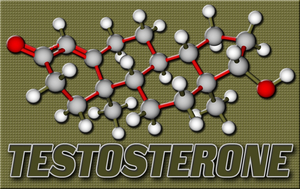Introduction to Hypopituitarism
Hypopituitarism is a rare disorder characterized by the decreased secretion of one or more of the eight hormones produced by the pituitary gland. This gland, often referred to as the "master gland," plays a crucial role in regulating various bodily functions, including growth, metabolism, and reproductive processes. When the pituitary gland fails to produce adequate levels of these hormones, it can lead to a range of health issues, including those affecting the male reproductive system.
The Role of Pituitary Hormones in Male Reproductive Health
The pituitary gland secretes several hormones that are vital for male reproductive health. Among these, luteinizing hormone (LH) and follicle-stimulating hormone (FSH) are particularly important. LH stimulates the production of testosterone in the testes, which is essential for the development and maintenance of male secondary sexual characteristics and sperm production. FSH, on the other hand, supports spermatogenesis by acting on the Sertoli cells in the testes. A deficiency in these hormones due to hypopituitarism can lead to reduced testosterone levels and impaired sperm production, which can have significant implications for male fertility and overall penile health.
Impact of Hypopituitarism on Penile Health
Hypopituitarism can lead to a variety of symptoms that directly affect penile health. One of the primary concerns is erectile dysfunction (ED), which can occur due to low testosterone levels. Testosterone is crucial for maintaining libido and the physiological processes that facilitate erections. Without adequate levels of this hormone, men may experience difficulties in achieving and maintaining an erection, leading to sexual dissatisfaction and potential psychological distress.
Additionally, hypopituitarism can result in reduced penile size and decreased sensitivity. The lack of testosterone can affect the development and maintenance of penile tissue, leading to atrophy and a reduction in size over time. This can further exacerbate issues related to sexual function and satisfaction.
Diagnosis and Treatment of Hypopituitarism
Diagnosing hypopituitarism involves a comprehensive evaluation of the patient's symptoms, medical history, and hormone levels. Blood tests are typically used to measure the levels of pituitary hormones and their target hormones, such as testosterone. Imaging studies, such as MRI scans, may also be employed to identify any structural abnormalities in the pituitary gland.
Treatment for hypopituitarism focuses on hormone replacement therapy to restore normal hormone levels. For men, this often involves testosterone replacement therapy, which can help alleviate symptoms such as ED and improve overall penile health. In some cases, additional hormones like growth hormone may be prescribed to address other symptoms of the disorder.
Managing Penile Health in Men with Hypopituitarism
Men diagnosed with hypopituitarism should work closely with their healthcare providers to manage their condition effectively. Regular monitoring of hormone levels and adjustments to treatment plans are essential to ensure optimal health outcomes. In addition to hormone replacement therapy, lifestyle modifications such as maintaining a healthy diet, regular exercise, and avoiding smoking and excessive alcohol consumption can support overall penile health.
Psychological support may also be beneficial, as the impact of hypopituitarism on sexual function can lead to emotional distress. Counseling or therapy can help men cope with these challenges and improve their quality of life.
Conclusion
Hypopituitarism can have a profound impact on male reproductive health, particularly in terms of penile function and fertility. Understanding the role of pituitary hormones and the effects of their deficiency is crucial for effective management of the disorder. With appropriate diagnosis and treatment, men with hypopituitarism can improve their penile health and overall well-being. As research continues to advance, new therapies and management strategies may further enhance the quality of life for those affected by this condition.
Contact Us Today For A Free Consultation

- What is Hypopituitarism [Last Updated On: March 16th, 2025] [Originally Added On: February 18th, 2021]
- Is There Such a Thing as Too Much HGH? [Last Updated On: March 16th, 2025] [Originally Added On: August 22nd, 2023]
- Unveiling the Cardiovascular Implications of Hypopituitarism in American Males [Last Updated On: March 1st, 2025] [Originally Added On: March 1st, 2025]
- Hypopituitarism in American Men: Impacts and Management Strategies [Last Updated On: March 10th, 2025] [Originally Added On: March 10th, 2025]
- Hypopituitarism and Metabolic Syndrome: Unraveling the Connection in American Males [Last Updated On: March 16th, 2025] [Originally Added On: March 16th, 2025]
- Unveiling the Cardiovascular Risks: The Link Between Hypopituitarism and Heart Disease in American Males [Last Updated On: March 16th, 2025] [Originally Added On: March 16th, 2025]
- Unraveling the Connection: Hypopituitarism and Uterine Fibroids in American Males [Last Updated On: March 16th, 2025] [Originally Added On: March 16th, 2025]
- Exploring Hypopituitarism's Impact on Vaginal Health and the Female Reproductive System [Last Updated On: March 16th, 2025] [Originally Added On: March 16th, 2025]
- Unraveling the Hormonal Link: Hypopituitarism and Breast Cancer in American Males [Last Updated On: March 16th, 2025] [Originally Added On: March 16th, 2025]
- Hypopituitarism and Autoimmune Disorders: Critical Insights for American Males [Last Updated On: March 16th, 2025] [Originally Added On: March 16th, 2025]
- Hypopituitarism and Obesity in American Males: Hormonal Impacts and Management Strategies [Last Updated On: March 17th, 2025] [Originally Added On: March 17th, 2025]
- Hypopituitarism in American Males: Hormonal Imbalances and Sleep Disorder Connections [Last Updated On: March 18th, 2025] [Originally Added On: March 18th, 2025]
- Surgical Interventions for Hypopituitarism and Pituitary Tumors in American Males [Last Updated On: March 19th, 2025] [Originally Added On: March 19th, 2025]
- Hypopituitarism's Impact on Mental Health in American Males: Depression, Anxiety, and Treatment [Last Updated On: March 19th, 2025] [Originally Added On: March 19th, 2025]
- Multidisciplinary Care Essential for Managing Hypopituitarism in American Males [Last Updated On: March 20th, 2025] [Originally Added On: March 20th, 2025]
- Hypopituitarism in American Males: Cancer Risks and Monitoring Strategies [Last Updated On: March 21st, 2025] [Originally Added On: March 21st, 2025]
- Hypopituitarism and Anemia in American Males: The Critical Role of EPO Deficiency [Last Updated On: March 21st, 2025] [Originally Added On: March 21st, 2025]
- Hypopituitarism and Male Hair Loss: Hormonal Mechanisms and Treatment Strategies [Last Updated On: March 21st, 2025] [Originally Added On: March 21st, 2025]
- Hypopituitarism's Impact on Kidney Function in American Males: Monitoring and Management [Last Updated On: March 21st, 2025] [Originally Added On: March 21st, 2025]
- Hypopituitarism's Impact on Immune Function in American Men: Diagnosis, Treatment, and Management [Last Updated On: March 21st, 2025] [Originally Added On: March 21st, 2025]
- Hypopituitarism in American Males: Cognitive Impacts and Management Strategies [Last Updated On: March 22nd, 2025] [Originally Added On: March 22nd, 2025]
- Hypopituitarism in American Males: Impact on Eye Health and Visual Impairments [Last Updated On: March 22nd, 2025] [Originally Added On: March 22nd, 2025]
- Hypopituitarism in Aging American Males: Impact, Diagnosis, and Management Strategies [Last Updated On: March 22nd, 2025] [Originally Added On: March 22nd, 2025]
- Hypopituitarism's Impact on Liver Health in American Males: Hormonal Deficiencies and Management [Last Updated On: March 22nd, 2025] [Originally Added On: March 22nd, 2025]
- Hypopituitarism's Impact on Joint Health in American Males: Diagnosis and Management [Last Updated On: March 22nd, 2025] [Originally Added On: March 22nd, 2025]
- Hypopituitarism's Impact on GI Health in American Males: Digestion and Nutrient Absorption [Last Updated On: March 23rd, 2025] [Originally Added On: March 23rd, 2025]
- Hypopituitarism's Impact on Skin Health in American Males: Symptoms and Management [Last Updated On: March 23rd, 2025] [Originally Added On: March 23rd, 2025]
- Hypopituitarism and Seizure Disorders in American Males: Clinical Insights and Management [Last Updated On: March 23rd, 2025] [Originally Added On: March 23rd, 2025]
- Hypopituitarism and Migraines: Hormonal Links and Management Strategies for American Men [Last Updated On: March 23rd, 2025] [Originally Added On: March 23rd, 2025]
- Hypopituitarism and Hypertension: Impact on Blood Pressure in American Males [Last Updated On: March 23rd, 2025] [Originally Added On: March 23rd, 2025]
- Hypopituitarism's Link to Gout and Uric Acid in American Males: A Comprehensive Analysis [Last Updated On: March 23rd, 2025] [Originally Added On: March 23rd, 2025]
- Hypopituitarism's Impact on Muscle Strength in American Males: Management and Insights [Last Updated On: March 24th, 2025] [Originally Added On: March 24th, 2025]
- Autoimmune Link: Hypopituitarism and Rheumatoid Arthritis in American Males [Last Updated On: March 24th, 2025] [Originally Added On: March 24th, 2025]
- Exploring the Link Between Hypopituitarism and MS in American Males [Last Updated On: March 24th, 2025] [Originally Added On: March 24th, 2025]
- Autoimmune Link Between Hypopituitarism and Celiac Disease in American Males [Last Updated On: March 24th, 2025] [Originally Added On: March 24th, 2025]
- Hypopituitarism and Diabetes: Impact on Glucose Metabolism in American Males [Last Updated On: March 25th, 2025] [Originally Added On: March 25th, 2025]
- Hypopituitarism's Impact on Kidney Health in American Males: Monitoring and Management [Last Updated On: March 25th, 2025] [Originally Added On: March 25th, 2025]
- Hypopituitarism and Hearing Loss: Exploring Links and Implications for American Males [Last Updated On: March 25th, 2025] [Originally Added On: March 25th, 2025]
- Hypopituitarism in American Males: Cardiovascular Risks and Management Strategies [Last Updated On: March 25th, 2025] [Originally Added On: March 25th, 2025]
- Hypopituitarism's Impact on Asthma in American Males: Hormonal Insights and Management [Last Updated On: March 25th, 2025] [Originally Added On: March 25th, 2025]
- Hypopituitarism and Allergies: Hormonal Impacts on Immune Response in American Men [Last Updated On: March 26th, 2025] [Originally Added On: March 26th, 2025]
- Hypopituitarism's Role in Accelerating Parkinson's Disease in American Males [Last Updated On: March 26th, 2025] [Originally Added On: March 26th, 2025]
- Hypopituitarism and Liver Cirrhosis: Impacts and Management in American Males [Last Updated On: March 26th, 2025] [Originally Added On: March 26th, 2025]
- Hypopituitarism and CFS Overlap in American Males: Symptoms, Mechanisms, and Clinical Insights [Last Updated On: March 26th, 2025] [Originally Added On: March 26th, 2025]
- Hypopituitarism and Fibromyalgia: Overlapping Symptoms and Impact on American Males [Last Updated On: March 26th, 2025] [Originally Added On: March 26th, 2025]
- Hypopituitarism, Hormonal Imbalances, and Alzheimer's Risk in American Males [Last Updated On: March 26th, 2025] [Originally Added On: March 26th, 2025]
- Hypopituitarism and Sjögren's Syndrome: Effects on Exocrine Glands in American Males [Last Updated On: March 26th, 2025] [Originally Added On: March 26th, 2025]
- Hypopituitarism and Dyslipidemia: Impacts on American Males' Health and Management Strategies [Last Updated On: March 26th, 2025] [Originally Added On: March 26th, 2025]
- Hypopituitarism's Impact on Prostate Cancer in American Males: Diagnosis and Management [Last Updated On: March 26th, 2025] [Originally Added On: March 26th, 2025]
- Exploring the Link Between Hypopituitarism and Lupus in American Males [Last Updated On: March 27th, 2025] [Originally Added On: March 27th, 2025]
- Hypopituitarism and Pituitary Cancer: Early Detection and Management for American Males [Last Updated On: March 27th, 2025] [Originally Added On: March 27th, 2025]
- Hypopituitarism in American Males: Monitoring Hormones to Reduce Stroke Risk [Last Updated On: March 27th, 2025] [Originally Added On: March 27th, 2025]
- Hypopituitarism and IBD: Gastrointestinal Links and Impacts on American Males [Last Updated On: March 27th, 2025] [Originally Added On: March 27th, 2025]
- Hypopituitarism and Adrenal Cancer: Endocrine Links in American Males [Last Updated On: March 27th, 2025] [Originally Added On: March 27th, 2025]
- Hypopituitarism and Osteoarthritis: Impact on Joint Health in American Males [Last Updated On: March 28th, 2025] [Originally Added On: March 28th, 2025]
- Hypopituitarism and Gallbladder Disease: Exploring Links in American Males [Last Updated On: March 29th, 2025] [Originally Added On: March 29th, 2025]
- Hypopituitarism's Impact on Pancreatitis: Risks and Management for American Males [Last Updated On: March 29th, 2025] [Originally Added On: March 29th, 2025]
- Hypopituitarism and Breast Cancer Link in American Males: Hormonal Insights and Clinical Implications [Last Updated On: March 30th, 2025] [Originally Added On: March 30th, 2025]
- Hormonal Imbalances in Hypopituitarism and Thyroid Cancer: Impacts on American Males [Last Updated On: March 30th, 2025] [Originally Added On: March 30th, 2025]
- Hypopituitarism and Testicular Cancer: Impacts and Fertility Preservation Strategies [Last Updated On: March 31st, 2025] [Originally Added On: March 31st, 2025]
- Hypopituitarism and Ovarian Cancer: Exploring Hormonal Links in American Males [Last Updated On: March 31st, 2025] [Originally Added On: March 31st, 2025]
- Hypopituitarism in American Males: Hormonal Imbalances and Benign Tumor Risks [Last Updated On: April 4th, 2025] [Originally Added On: April 4th, 2025]
- Hypopituitarism and PCOS: Symptoms, Diagnosis, and Management Strategies [Last Updated On: April 4th, 2025] [Originally Added On: April 4th, 2025]
- Hormonal Links Between Hypopituitarism and Endometriosis in American Males Explored [Last Updated On: April 5th, 2025] [Originally Added On: April 5th, 2025]
- Hypopituitarism and Erectile Dysfunction: Hormonal Links and Holistic Management in American Males [Last Updated On: April 6th, 2025] [Originally Added On: April 6th, 2025]
- Hypopituitarism, Hormonal Imbalance, and Cervical Cancer Risk in Men [Last Updated On: April 8th, 2025] [Originally Added On: April 8th, 2025]
- Hypopituitarism's Impact on Female Reproductive and Vaginal Health: Diagnosis and Management [Last Updated On: April 9th, 2025] [Originally Added On: April 9th, 2025]
- Hypopituitarism and Premature Ejaculation: Exploring Hormonal Links in American Males [Last Updated On: April 10th, 2025] [Originally Added On: April 10th, 2025]
- Hypopituitarism's Impact on Miscarriage Risk and Male Fertility in America [Last Updated On: April 10th, 2025] [Originally Added On: April 10th, 2025]
- Hypopituitarism and Preeclampsia in Pregnancy: Monitoring and Management Strategies [Last Updated On: April 10th, 2025] [Originally Added On: April 10th, 2025]
- Hypopituitarism and Ectopic Pregnancy: Impacts and Management in Women's Health [Last Updated On: April 11th, 2025] [Originally Added On: April 11th, 2025]
- Hypopituitarism and Male Infertility: Causes, Diagnosis, and Treatment Options [Last Updated On: April 11th, 2025] [Originally Added On: April 11th, 2025]
- Hypopituitarism and Gestational Diabetes: Metabolic Links in American Males [Last Updated On: April 11th, 2025] [Originally Added On: April 11th, 2025]
Word Count: 592





















